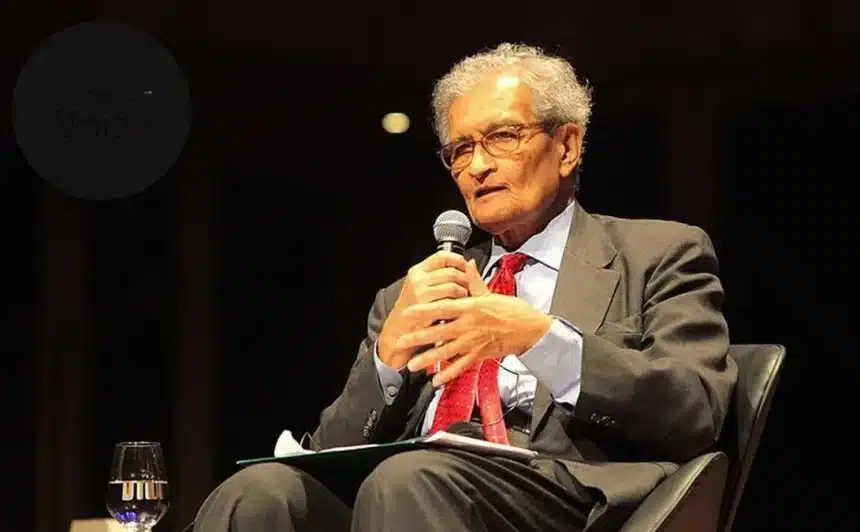Amartya Kumar Sen is an Indian economist, and philosopher. he receives the Novel Prize 1998 in Economic Sciences for his contributions to welfare economics.
EARLY LIFE
Amartya Kumar Sen was born on 3 November 1933, in Bengal, India. His father was a chemistry professor at Dhakka University. He did his primary education at St Gregory’s School in Dhaka. In 1945, his family moved to West Bengal. In 1951, he did his B.A. in Economics at Presidency College, Calcutta. In 1953, he moved to Trinity College, Cambridge and where he earned a second B.A. degree in Economics in 1955. When he was a Ph.D. student at Cambridge. He was offered as the first youngest professor and head of the Economics Department of the newly created Jadavpur University in Calcutta. He served in the position from 1955 to 1958. He taught economics at several universities the University of London from 1971 to 1977, and at the University of Oxford from 1977 to 1988. He was also taught as a visiting teacher at MIT, Stanford, Berkeley, and Cornell Universities. In 1998 he was appointed Master of Trinity College, Cambridge, and held the position until 2004.
In 2007, he was appointed as the chairman of the Nalanda Mentor Group and in 2012 he was appointed as the first chancellor of Nalanda University.
He was interested in femininity. As a nine-year-old boy, he witnessed the Bengal famine of 1943, in which three million people perished. He believed that there was an adequate food supply in Bengal at the time but that its distribution was hindered because groups of people in this case rural laborers lost their jobs and therefore, they are not able to purchase the food, in his book Poverty and Famines: An Essay on Entitlement and Deprivation (1981), he pointed many cases of famine, food supplies were not significantly reduced. Instead, several social and economic factors, such as declining wages, unemployment, rising food prices, and poor food distribution,
He wrote several books like Poverty and Famines: An Essay on Entitlement and Deprivation in 1981, Development as Freedom in1999, Rationality and Freedom in 2002, a discussion of social choice theory; The Argumentative Indian: Writings on Indian History, Culture, and Identity in 2005, and AIDS Sutra: Untold Stories from India in 2008.
In 1961, he also visited the Massachusetts Institute of Technology.
AWARDS
He was awarded Nobel Prize in 1998, in Economic Sciences for his contributions to welfare economics.
He also received the Bharat Ratan in 1999, the highest civilian award in India.

